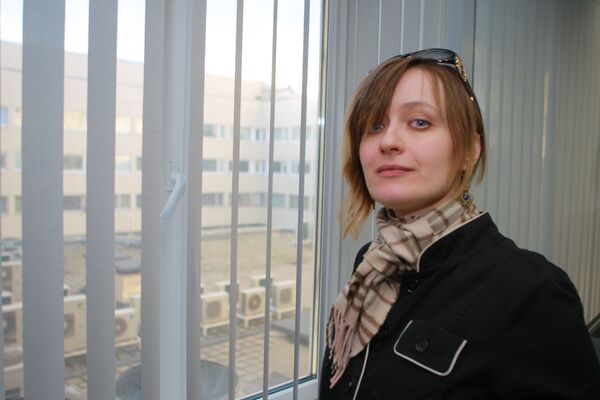I’ve never cried about a *law* before. So If President Vladimir Putin wanted shock and awe, he sure got it right with the Dima Yakovlev Bill, banning adoptions of Russian orphans by Americans. Unfortunately, Russia can’t afford to build either foreign or domestic policy on shock and awe.
As an American living in Russia and married to a Russian, I’m affected by the law personally. I had no immediate plans to adopt a child, but it’s something I have been thinking about for the last five years or so, and something I had hoped to do eventually. Being cast as a monster that would deliberately harm a child is certainly interesting. Yet more pressing for me is the fate of the 46 Russian orphans who had already been told that they would be adopted in the States, who had already thought they had acquired families.
Russia, long sidelined in various geopolitical games, was getting its foreign policy mojo back just a few years ago. And now the country’s leadership is resorting to tactics that are as petty as they are harmful. It’s sad to watch, especially as no genuinely informed person I know is in any way in favor of the Dima Yakovlev Bill.
Those who have experience with orphanages, with orphans, with being adoptive parents or foster parents are all against it. In this light, the flood of professional internet trolls aiming to present the president as someone heroically saving orphans from mistreatment in American families is even less convincing than usual.
Of course, foreign adoptions have long been a sticky issue for many Americans, particularly in states where the foster care system is, to put it mildly, troubled, and plenty of US children are in peril. Not to mention the national soul-searching that continues following the Newtown, Connecticut massacre, in which a gunman killed 20 first-graders, among others. Can American society adequately protect its children, adopted and otherwise, against rampant gun violence?
This is the question we must all ask ourselves in the wake of an unspeakable tragedy, particularly as massacres of this scope now appear to be a self-perpetuating phenomenon, with each gunman seeking to “outdo” the previous one.
But there is also one very obvious fact in the latest shocking development between Russia and the United States: like it or not, children with disabilities have a better chance for a dignified existence in the latter country. Anyone who has taken a ride in a wheelchair across the Russian capital (or any other Russian city or town) can attest to that simple fact.
The Soviet Union did not prioritize the needs of people with disabilities – and not only that, but children with disabilities were labeled as a “punishment,” or as “evidence” of their parents’ unhealthy lifestyle. Russia is dealing with the consequences of this mentality to this day, and this horrific legacy will not be done away with in one sitting. Kids who can’t wait around for the country to slowly, gradually change should be allowed their chance to live a better life elsewhere, even if it wounds someone’s pride.
Many Russians are reluctant to take in children with disabilities. Not because they are cold-hearted, but because raising such a child in Russia means that you have to be a hero, every day. Most people are not heroes.
Just recently, I witnessed an older woman in an expensive-looking fur coat taking umbrage with the fact that a wheelchair was blocking her way in an electronics store. The horror! Forced to maneuver around a wheelchair during holiday shopping! Because the occupant of the wheelchair, a school-age boy, was napping, Ms. Fur Coat began criticizing his mother.
Then I began criticizing Ms. Fur Coat. “Who are you to even speak to me!” She retorted grandly. Before I could answer, a man who had been making utilities payments in a nearby terminal, turned around and said to Ms. Fur Coat, “At least we know who *you* are. A stupid hag without a conscience, who harasses the disabled.”
Ms. Fur Coat left the electronics store holding back tears. As I watched her go, I could barely contain tears myself. No matter how much I wanted to hate her, all I felt was pity. In her callousness, she invited callousness upon herself, and she wasn’t even aware of it. Undoubtedly, she had been taught that “only people living on the margins of society,” as the Soviet saying went, could have children with disabilities, or deign to take them shopping.
Even worse, there are still too many Ms. Fur Coats in Russia. And they are raising their children and grandchildren accordingly.
The views expressed in this article are the author's and do not necessarily represent those of RIA Novosti.
Trendwatching in Russia is an extreme sport: if you’re not dodging champagne corks at weddings, you’re busy avoiding getting trampled by spike heels on public transportation. Thankfully, due to an amazing combination of masochism and bravado, I will do it for you while you read all about it from the safety of your living room.
Natalia Antonova is the acting editor-in-chief of The Moscow News. She also works as a playwright – her work has been featured at the Lyubimovka Festival in Moscow and Gogolfest in Kiev, Ukraine. She was born in Ukraine, but spent most of her life in the United States. She graduated from Duke University, where she majored in English and Slavic Literature. Before coming to Moscow, she worked in Dubai, UAE and Amman, Jordan. Her writing has been featured in The Guardian, Foreign Policy, Russia Profile, AlterNet, et al.
Trendwatcher:Thinking Locally on Adoption
Trendwatcher: This American Pig
Trendwatcher: Desperately Seeking Pavel Kostomarov
Trendwatcher: A Day in the Life of Tatyana Ivanova
Trendwatcher: The Boring Russians of Dubai
Trendwatcher: Destroying Football – for the Lulz
Trendwatcher: Lunching with the Enemy
Trendwatcher: The Moscow Grocery Shop of Horrors



